
When we think of the “fitness industry,” all of us instantly picture hot chicks in sports bras displaying super flat stomachs and perky butts or shredded dudes with bulging pecs and biceps. And there is an assumption that those with lean physiques and perfectly sculpted muscles are the epitome of health and fitness.
This is in fact not true. Sure, having muscle on your frame and not being overweight does signify health, but that does not mean the leanness and muscular definition we see was achieved through the healthiest of methods.
Unfortunately, so much of what we see in the fitness industry — from trainers, to fitness models and competitors, to the big supplement companies and fitness magazines — has mostly evolved from the bodybuilding industry. This is because the biggest motivator for people to get into a gym is to improve the way they look. So when your average trainer in the gym tells you to eat oatmeal and egg whites for breakfast, this advice is coming from an angle of weight loss only. Sure, this may make you leaner, but does eating this way actually make you a healthier individual?
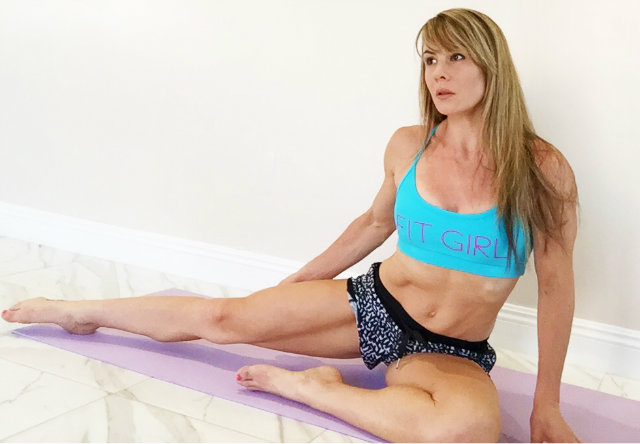
This is me: I know it is possible for you to eat healthy and get the body you want.
The fitness industry, with its focus on looking good, has become so concrete in its methods and beliefs that it is very hard to break away from. In this article, I want to look at the nutritional aspect of what goes on in this industry. What is considered healthy eating may not be so healthy after all.
Myth 1: You Can Prep the Same Meals Every Day
Have you seen those Instagram posts that look like an assembly lines of identical meals? I understand if you are eating eight meals a day, that eating the same thing is much easier to prepare and more cost effective. However, eating the same thing over again for each meal limits variety and therefore food sources that contain essential nutrients, vitamins, minerals, and antioxidants vital to our health. Not to mention eating the same thing day in day out will get really boring!
Although it may take a little longer to prepare, changing things up and creating different meals every day with a variety of ingredients is much more beneficial to your health since it gives you a greater variety of essential nutrients. Taking the time to switch chicken breast with a salmon filet will add a beneficial boost of omega-3 fats. Or switching rice to quinoa will give you a boost of vitamin B and more fiber.
Myth 2: Eggs White Are Better Than Whole Eggs
In the fitness industry, there seems to be this obsession with egg whites. I thought the notion that cholesterol in the egg yolk is detrimental to your health was old news. Cholesterol is actually essential for the manufacturing of our hormones, and evidence has shown that animal-based cholesterol doesn’t elevate your “bad” cholesterol (LDL). In fact, replacing polyunsaturated fats such as canola oils with fats derived from animal sources has been shown to reduce heart disease.
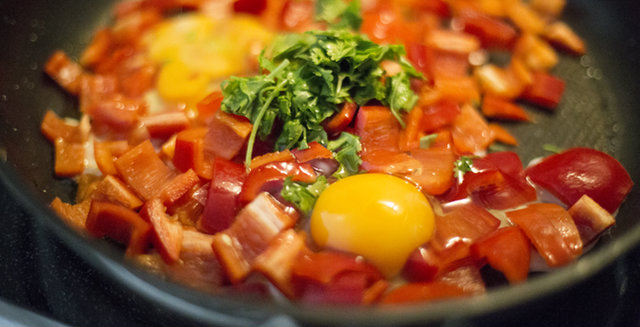
In addition, egg yolks contain healthier sources of fats such as omega-3s, small amounts of saturated fat, and protein that is a whole source. Egg yolks contain all the fat soluble vitamins (A, D, E, and K) and vitamins B6 and B12, as well as folate and choline. In fact, eggs are one of the best sources of choline, which acts as a precursor to a neurotransmitter that is vital to nerve and muscle function. Choline also supports healthy liver function.2
So for those who have been avoiding eating the egg yolks in the name of health and forcing down a boring white blob of protein jelly every morning, you can eat the whole egg and enjoy a fluffy omelet or some flavorful poached eggs with delicious runny yolks and get a dose of vitamins and good fats, too.
Myth 3: Carbs Are Just for “Bulking”
Often carbs are added to meals with the intention of refueling and replenishing glycogen stores and to shuttle the protein molecules into the muscle for those “gainz.” But there seems to be little thought toward the nutritional value of the carbohydrate sources since too often baked potatoes, white rice, and oatmeal are the preferred choice. Often these sources are devoid of essential fats, amino acids, vitamins, or fiber.
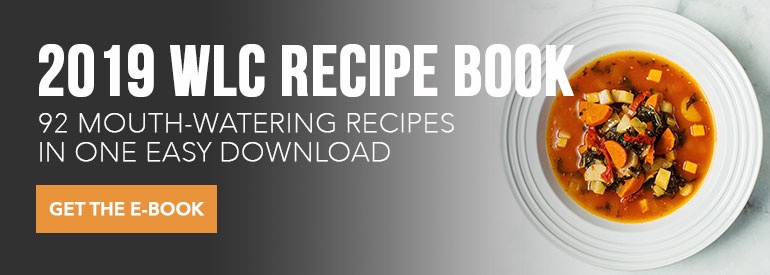
Much better carbohydrate options to fuel and replenish glycogen stores are quinoa, wild rice with a variety of different grains, butternut squash, or root vegetables such as sweet potato. All of these carbohydrate sources are higher in fiber and higher in vitamins and minerals. Quinoa contains all nine essential amino acids and is high in vitamin B. Yellow- or orange-colored root vegetables are high in carotenoids which are an antioxidant that your body converts to vitamin A, which is good for your vision, skin, bones, heart, and immune system.

Myth 4: Fruit Should Be Avoided
In the fitness industry, there also seems to be an aversion to fruit since apparently fruit is too high in simple sugars. Simple sugars are generally avoided because they cause a spike in blood sugar levels whereby the body releases insulin to shuttle excess glucose from the blood stream into the liver as glycogen or converts it to fat to be stored. In order to avoid excess simple sugars to be converted to fat, fruits are often avoided.
However, even though fruits are considered simple sugars and are sweet tasting, the high fiber of some fruit can actually make the body take longer to break it down. And different fruits contain different amounts of sugar. Grapes are high in sugar, while strawberries are much lower. Regardless, fruits are a natural whole source of carbohydrate and far better on the body than processed wheat crackers or energy bars that have been sweetened with high fructose corn syrup or have been artificially sweetened. Fruits contain a variety of vitamins, minerals, and antioxidants that are essential to our health.
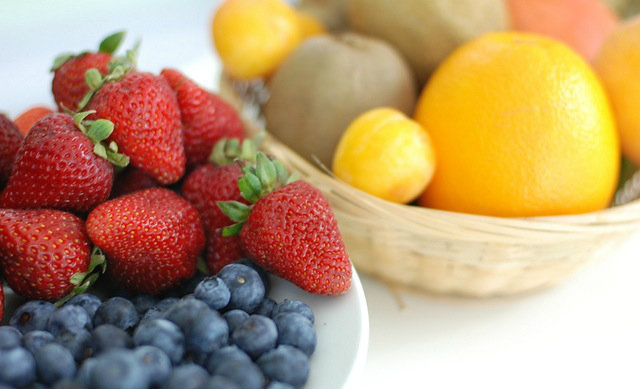
Myth 5: We Must Eat All the Protein
People in the fitness industry always seem to be chugging a protein shake. Bodybuilders especially consume higher than normal levels since a diet higher in protein means a greater propensity to gain muscle. However, there is such a thing as too much protein. It is hard work for the body to break down protein into amino acids and figure out what to do with them, whether it be to create different proteins the body needs, excrete excess proteins as urea, or to go through a lengthy process of converting amino acids into ATP for energy through a process known as gluconeogenesis. People who consume a diet too high in protein can put undue stress on the liver and kidneys.
In addition, this overload of protein often come from sources that aren’t whole or in a natural state. Protein is often consumed in the form of whey protein shakes or protein bars derived from soy isolate that are highly processed and often genetically modified. Just because something says it contains protein, does not mean it is healthy. It doesn’t matter if a protein bar states that it contains 16 grams of protein and only 5 grams of sugars – a food that is far from its natural state is difficult for your body to process and may not make you feel so good in the end.
If you are on the go and need a quick protein snack with some carbs, opt for a couple of hard-boiled eggs and a banana. These foods are natural and whole and therefore in a form your body can digest happily and efficiently. Plus they taste better than most of those shake and bars anyway!
Myth 6: It’s All About the Protein and “Clean” Carbs
More often than not I see bodybuilder’s plates piled high with egg whites and oatmeal, steak and baked potatoes, or chicken and rice. But where are the greens? It seems with the focus of getting that ripped body, greens have little or no value. But this is fundamentally wrong. Greens are packed with so much nutritional value, phytonutrients, anti-cancer properties, vitamins, and minerals that are essential for our overall health and proper function.
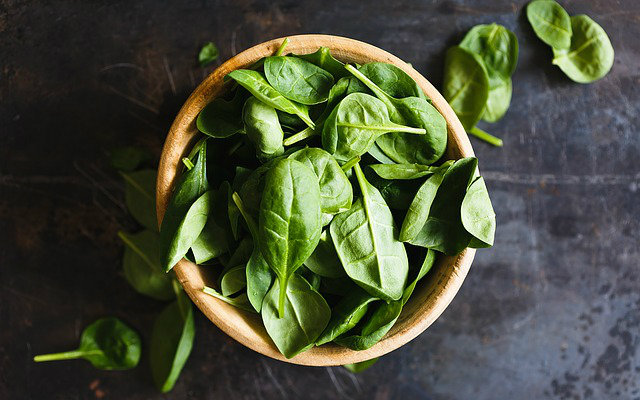
Don’t Buy the Nutrition Myths – Eat and Be Healthy
Although many people in the fitness industry may look like they are the picture of health, it doesn’t necessarily mean they are healthy. Their diets could be limited in essential nutrients due to a lack of variety, a lack of fats, and a lack of fruits and vegetables, which contain an abundance of vitamins and minerals that are essential to our well-being.
So, eat your egg yolks, eat protein from natural sources, and add fruits and vegetables. By eating a greater variety of whole foods, you will feel better and be healthier. Eating clean to get the body you want doesn’t mean you have to take the flavor and goodness away. You can put an end to bland chicken breast, egg whites, and oatmeal and enjoy the riches of all the amazing foods nature has to offer – and still get the body you want.
References:
1. Hu, Frank B. “Are refined carbohydrates worse than saturated fat?” The American Journal of Clinical Nutrition, 2010 Jun; 91(6): 1541–1542.
2.”Choline.”DrWeil.com.



































